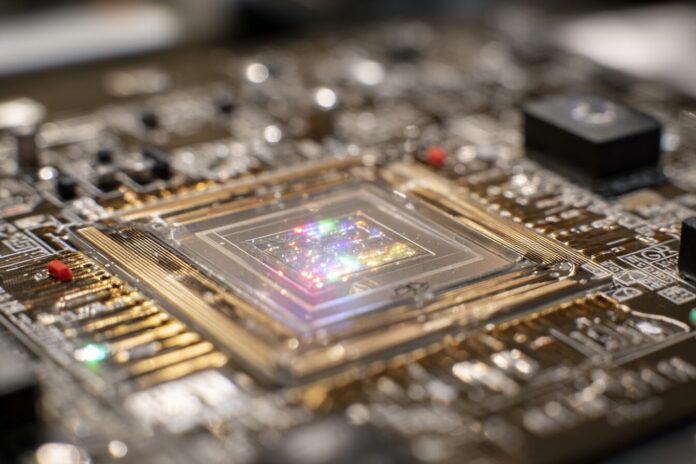Overview: A Leap Towards Everyday Quantum Technology
In today’s rapidly evolving tech landscape, innovative startups are pioneering breakthroughs that could revolutionize the way we compute. Most importantly, a German startup has embarked on a groundbreaking journey to design portable quantum computers using diamonds. This ambitious project envisions Quantum Processing Units (QPUs) that seamlessly operate alongside traditional CPUs and GPUs, paving the way for quantum power in everyday devices.
Why Diamonds? Unveiling the Secret to Room-Temperature Quantum Operations
Traditional quantum computers demand ultra-cold environments, rendering them impractical for broad commercial applications. Because diamond-based QPUs harness the unique properties of spin qubits in diamond, they maintain stability at room temperature. Therefore, these systems eliminate the need for bulky cryogenic cooling, resulting in smaller, energy-efficient devices that are easier to maintain. Moreover, the use of diamonds not only ensures stability but also offers exceptional robustness in diverse operating conditions. For additional insights, visit Quantum Brilliance.
Expanding the Possibilities: Integration with Classical Computing
Besides that, diamond quantum systems are designed to work as co-processors rather than replacements for classical hardware. This means that while CPUs and GPUs handle routine tasks, the diamond QPUs can accelerate specific calculations related to optimization problems, cryptography, and complex simulations. Most importantly, this synergy between quantum and classical computing could lead to more efficient data centers and smarter edge devices. Companies like Quantum Brilliance and XeedQ are leading the charge, making it possible to integrate quantum accelerators into existing technologies. To learn more about their initiatives, check out The Next Web’s coverage.
Innovative Demonstrations: From Research Labs to Classrooms
Because practical demonstrations build confidence in emerging technology, research institutions are already embracing diamond quantum computers. For instance, XeedQ’s “Baby Diamond” quantum computer installation at Goethe University in Frankfurt has opened new avenues for research and academic exploration. This initiative not only exposes students to cutting-edge technology but also accelerates practical applications of quantum computing in real-world scenarios. For further reading, please visit The Quantum Insider.
The Impact of Portability: From Desktops to Edge Devices
Therefore, the revolution in quantum computing is not limited to laboratory research. The miniaturization of quantum hardware is set to transform various sectors including telecommunications, logistics, and autonomous vehicles. Portable diamond QPUs could soon be deployed in satellites, drones, and even remote industrial settings where space and energy are constrained. Most importantly, because these devices operate at room temperature, they promise easier integration and reduced costs, thereby democratizing access to quantum computing technology on a global scale.
Bridging the Gap: Overcoming Integration Challenges
Because the integration of quantum and classical computing architectures introduces technical challenges, startups are focusing on developing robust standards and user-friendly software interfaces. New programming models and hybrid systems are emerging, ensuring that quantum enhancements can be harnessed without the need for specialized quantum expertise. In this context, continuous research and development supported by funding and academic partnerships are vital. As reported by XeedQ GmbH, these collaborative efforts are fostering an ecosystem that favors rapid innovation.
Future Prospects: Democratizing Quantum Technology
Most importantly, as production costs decrease and technology matures, diamond-based quantum computers could become as commonplace as traditional accelerators. This democratization of quantum computing is expected to unlock unprecedented opportunities in diverse industries—from financial modeling to secure communications. Because of their inherent advantages, these devices promise to transform both consumer and industrial applications in the near future.
Conclusion: Diamonds Lighting the Way to a Quantum Future
In summary, diamond quantum computers are set to redefine the boundaries of what’s possible in technology. With room-temperature operation, reduced energy demands, and potential for seamless integration with existing hardware, quantum computers are no longer confined to specialized labs. As transitional steps are continuously implemented, from research installations to scalable industrial applications, the future looks bright for this next generation of computing. To keep abreast of ongoing advancements, readers may revisit sources such as TechRadar and The Next Web.
References
- TechRadar – German Startup on Portable Diamond-Based Quantum Computers
- Quantum Brilliance
- The Quantum Insider – XeedQ’s Baby Diamond Quantum Computer
- XeedQ GmbH
- The Next Web – Quantum Brilliance Secures Funding



